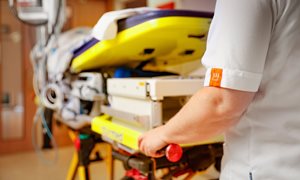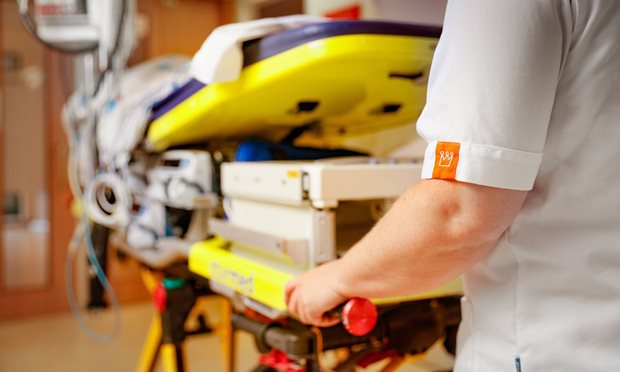

Center of Expertise for Pediatric Trauma and Burns
At Amalia children’s hospital we treat children who suffer multiple or severe injuries following an accident. We call this child trauma care.
We distinguish ourselves by not treating the children as young adults. Instead, we adjust our care to the child's needs. We also focus on the impact a trauma and burns can have on the family as a whole. We do everything we can to prevent pain and stress.
What are burns?
A burn is partial or complete damage to the skin caused by heat, electricity, chemicals, or frostbite.
Types of burns
Burns can be divided into superficial second-degree, deep second-degree, mixed, and third-degree burns.
read moreTypes of burns
We categorize burns based on the depth of the wound. The skin consists of two layers. These are the epidermis and the dermis. The skin also contains hair, sebum, and sweat glands.
Burns can be divided into superficial second-degree, deep second-degree, mixed, and third-degree burns. A first-degree burn only involves redness of the skin.
-
A first-degree burn is not a wound, although it can still be painful. Consider sunburn, for example.
-
In superficial second-degree burns, blisters often develop. Wounds usually heal within two weeks, often without scarring. We clean these burns and cover them with a temporary wound dressing.
-
For a deep second-degree burn, healing can take up to three weeks. Scars are likely to appear. These are often red, stiff, thick, and bumpy. These scars are called hypertrophic scars. If these scars run across a joint, your child may not be able to freely move the joint in question.
To prevent hypertrophic scars as a result of second-degree burns, we perform skin grafting.
-
A mixed burn is a combination of a superficial, and a deep second-degree burn. Mixed burns are often caused by hot water, such as hot tea. It is not always immediately clear whether surgery is necessary. We therefore examine the wound several times.
-
A burn in which both layers of skin are completely burned is called a third-degree burn. With a third-degree burn, we perform skin grafting. A third-degree burn is usually caused by a flame. The burn is often stiff, but comparatively less painful.
Acute admission
Upon arrival at the Emergency Room, we start monitoring breathing, pulse, and blood pressure. We assess the size and depth of the burns. In case of extensive burns, your child will be given additional fluids through an IV.
read moreRisks
The severity of the burn depends on its depth, size, location, your child's age, and any additional injuries. The skin is the body's largest organ and has a protective function. Skin burns cause the skin to lose some of its important functions. This may lead to moisture loss and infection risk from bacteria. The body loses heat and cannot maintain its temperature.
More information


Amalia Children's Hospital
The Amalia Children's Hospital is part of the Radboud university medical center. Every year, we treat approximately 22,000 children between the ages of 0 and 18.
read moreThe team
For the treatment of burns, we work together from different disciplines to provide the best care. Our multidisciplinary team consists of:
- Nurses
- Pediatricians
- Pediatric intensivists
- Pediatric anesthesiologists
- Surgeons (pediatric, trauma, plastic)
- Child psychologists
- Educational caregivers
- Social workers
- Physiotherapists
- Occupational therapists
- Rehabilitation physicians
- Gastrointestinal specialist and dietitian
- Microbiologist
-
Joris Lemson kinderintensivist
-
Dietmar Ulrich plastisch chirurg/afdelingshoofd


